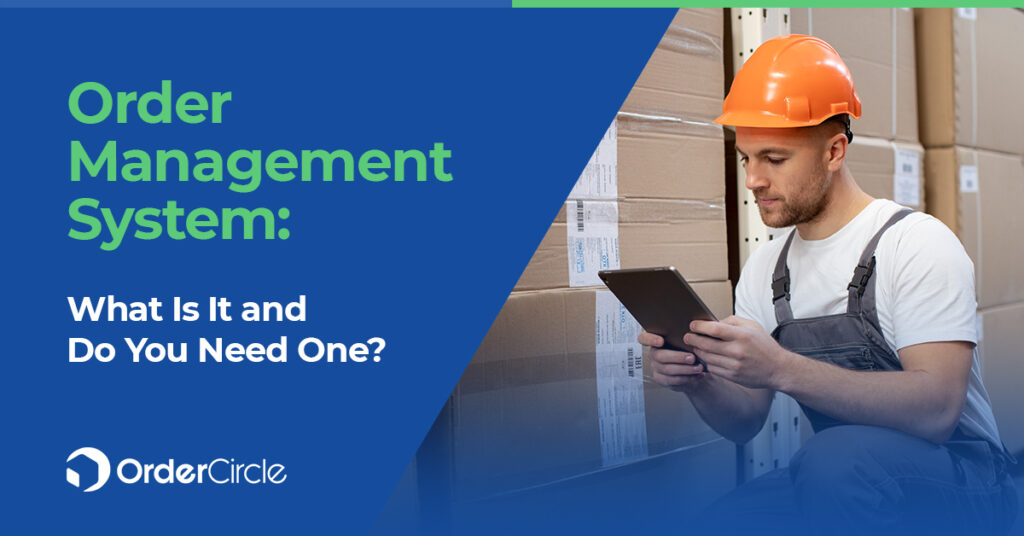In the fast-paced world of B2B eCommerce, effective order management is crucial for success. As your business grows, managing orders, inventory, and customer data manually become increasingly complex and time-consuming. This is where an Order Management System (OMS) comes into play.
In this blog, we will explore what an OMS is, the key features of a B2B order management system, and whether your business needs one.
What is an Order Management System (OMS)?
An Order Management System (OMS) is a software solution designed to streamline and automate the entire order management process. It acts as a central hub where you can efficiently manage orders, track inventory, handle fulfillment, and enhance customer service. A robust OMS integrates with various systems, including your eCommerce platform, inventory management software, and shipping carriers, to ensure seamless operations.
Do You Need an Order Management System?
To determine whether your business needs an OMS, consider the following factors:
- Order Volume and Complexity: If your business deals with a high volume of orders or complex order management processes, an OMS becomes essential. Manual order processing becomes inefficient and error-prone as order volume increases. An OMS automates order processing, reducing errors, improving order accuracy, and increasing efficiency.
- Inventory Management: Efficient inventory management is critical to B2B success. An OMS provides real-time visibility into stock levels, helps prevent overselling, and facilitates timely reordering. With accurate inventory data, you can fulfill orders faster, avoid stockouts, and optimize your supply chain.
- Multi-Channel Selling: If your business operates across multiple sales channels, such as eCommerce platforms, marketplaces, and offline channels, an OMS becomes invaluable. It enables centralized order management, consolidates data from various channels, and ensures consistent order processing and customer service across all channels.
- Customer Expectations and Service: B2B customers have high expectations when it comes to order fulfillment and customer service. An OMS helps you meet these expectations by automating order confirmation emails, providing real-time order tracking, and ensuring timely delivery. It also centralizes customer information, allowing for personalized service and efficient resolution of inquiries or issues.
Key Features of a B2B Order Management System:
When evaluating an OMS for your B2B business, look for the following key features:
- Order Processing Automation
An OMS automates the entire order processing workflow, from order creation to fulfillment. It automatically captures and processes orders, generates invoices, updates inventory levels, and tracks shipment status. This streamlines operations, minimizes errors, and accelerates order fulfillment.
- Inventory Management and Optimization
A robust OMS provides real-time inventory visibility across multiple locations, allowing you to manage stock levels efficiently. It helps prevent stockouts, offers inventory forecasting capabilities, and enables efficient replenishment planning. With accurate inventory data, you can optimize your stock levels and avoid costly overstocking or understocking scenarios.
- Integration with eCommerce Platforms
An OMS seamlessly integrates with your eCommerce platform, enabling synchronized order data and inventory management. This eliminates the need for manual data entry, reduces errors, and provides accurate and up-to-date information across systems.
- Order Tracking and Shipment Management
Customers expect visibility into their order status and shipment tracking. An OMS enables real-time order tracking, automated shipment notifications, and integration with shipping carriers. This enhances the customer experience, improves transparency, and reduces customer inquiries regarding order status.
- Customer Relationship Management
An OMS centralizes customer data, order history, and communication records, allowing for personalized customer service. It enables efficient order processing for repeat customers, facilitates customized pricing and discount management, and supports loyalty programs. With a comprehensive view of customer information, you can provide personalized service, resolve inquiries quickly, and nurture long-term customer relationships.
- Reporting and Analytics
A robust OMS offers reporting and analytics capabilities to gain valuable insights into your order management processes. It provides key metrics such as order volume, fulfillment speed, customer satisfaction, and inventory turnover. These insights help you identify trends, make data-driven decisions, and optimize your B2B operations for growth.
- Scalability and Flexibility
As your business expands, scalability and flexibility become essential. An OMS should be able to accommodate increasing order volumes, support integration with new sales channels, and adapt to evolving business needs. Look for an OMS that can scale with your growth and offers customization options to meet your unique requirements.
Get your Business Processes in Order with OrderCircle
In today’s competitive B2B eCommerce landscape, efficient order management is vital for success. An Order Management System (OMS) automates and streamlines your order processing, inventory management, and customer service, saving time, reducing errors, and improving customer satisfaction. Evaluate your business’s order volume, complexity, and growth plans to determine if an OMS is right for you. Investing in a robust B2B order management system can transform your operations, optimize efficiency, and drive business growth.
Ready to take your order management to the next level? Discover the power of a comprehensive B2B order management system with OrderCircle CRM. Streamline your order processing, optimize inventory management, and enhance customer service. Request a demo today and unlock the potential for growth in your B2B eCommerce journey.

